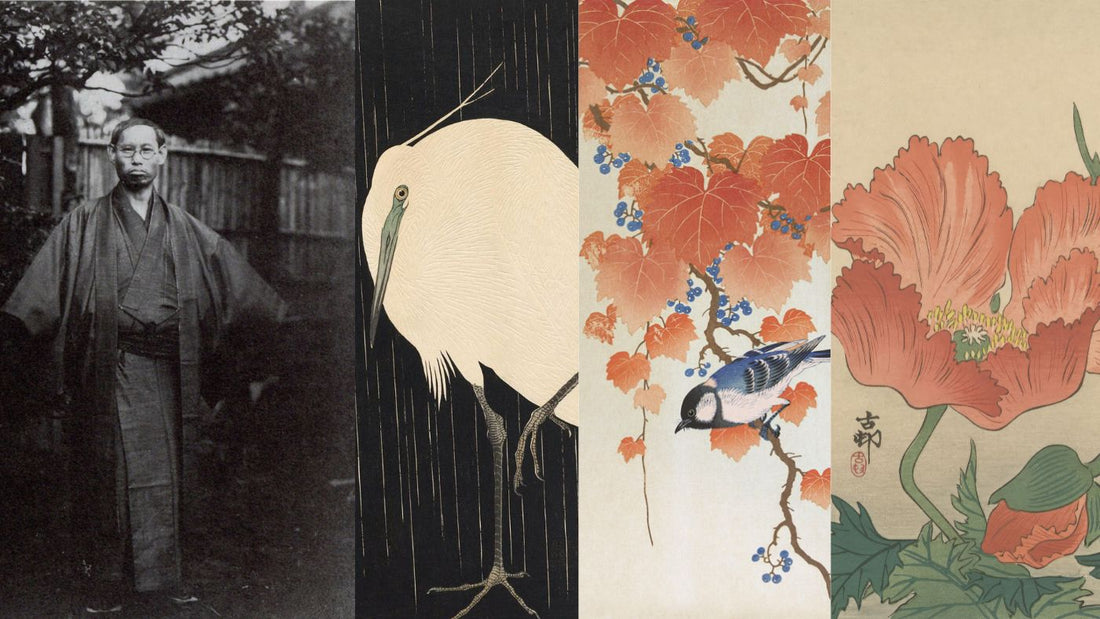
Ohara Koson (1877–1945): Master of Japanese Bird-and-Flower Prints
Share
Ohara Koson is one of the best-known Japanese artists of the shin-hanga movement. His bird-and-flower prints, known as kachō-e, defined early 20th-century Japanese art and remain highly collectible today. Koson’s works are held in major museums and continue to attract both collectors and home décor enthusiasts worldwide.
Who Was Ohara Koson ?
Ohara Koson (1877–1945), also known as Shoson or Hoson, was a leading artist of the shin-hanga (“new prints”) movement. Born in Kanazawa, he trained under Suzuki Kason and began as a nihonga painter before turning to woodblock printmaking. He worked closely with publisher Watanabe Shōzaburō, whose efforts brought Japanese prints to international audiences.
View Ohara Koson Japanese prints
Early Career
Koson initially worked as a nihonga-style painter before turning to printmaking. He collaborated with publishers like Watanabe Shozaburo, a pioneer of the shin-hanga movement, which aimed to revitalize Japanese printmaking by combining traditional techniques with Western influences.
Kachō-e - Birds and Flowers :
Koson's most famous works are undoubtedly his kacho-e. His prints of birds in flight, perched, or in action are imbued with unparalleled realism and detail. The flowers, often depicted with botanical precision, add a touch of delicacy and poetry to his compositions.
Koson produced over 500 prints, mainly kachō-e (bird-and-flower prints). His work stands out for:
-
lifelike detail in feathers and movement,
-
refined use of color gradations (bokashi),
-
minimalist compositions where empty space enhances the subject.

Techniques and Style
Koson used traditional woodblock printing techniques but also incorporated elements of Western realism, creating works that appeared both traditional and modern. His use of colors and shading was particularly notable, bringing depth and vitality to his prints.

Famous Works
Some of Koson’s most iconic prints include:
-
Egret in the Rain,
-
Sparrows and Plum Blossoms,
-
Great Tit on a Paulownia Branch,
-
Group of Egrets in snow.
Notable works by Koson include "White heron standing in the rain", "Sparrows and Plum Blossoms," and "Great tit on paulownia branch." Each of these prints showcases his skill in capturing the character and spirit of his subjects while highlighting the natural beauty of their environments.
Global Recognition
-
Koson’s prints were widely exported to the United States and Europe.
-
Today, they are held in major institutions such as the Metropolitan Museum of Art, the Museum of Fine Arts Boston, and the Rijksmuseum.
-
His works remain popular among both collectors and home décor enthusiasts.
Why Koson Still Matters
Koson’s prints combine Japanese tradition with modern sensibility. They continue to inspire artists and attract those who value the timeless beauty of Japanese nature.
👉 Discover our Japanese-inspired art collection
✨ Which Koson print would you choose for your living room?
